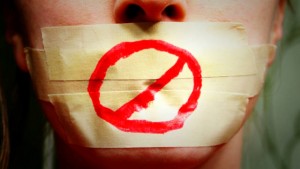Home » Commentary » Opinion » Protecting minorities does not require sacrificing free speech
· Online Opinion
 Flawed ‘hate speech’ laws are a threat to free speech. The bill introduced by Victorian MP Fiona Patten – which would make statements deemed ‘likely to incite’ vilification of racial and other minorities illegal – is an example of legislation that threatens free speech by significantly weakening the vilification threshold.
Flawed ‘hate speech’ laws are a threat to free speech. The bill introduced by Victorian MP Fiona Patten – which would make statements deemed ‘likely to incite’ vilification of racial and other minorities illegal – is an example of legislation that threatens free speech by significantly weakening the vilification threshold.
In addition to Victoria, most Australian states and territories are reviewing their vilification laws, in the belief current protections are inadequate and require ‘modernising.’
Criminal vilification laws make it unlawful to incite or threaten violence against a group or individual because they have a protected attribute. Whereas, civil vilification laws target less serious instances of vilification, such as insulting or offensive speech.
The best way to protect minorities – while also properly protecting free speech – is to ensure the criminal laws prohibiting incitements and threats of violence are effective.
Inciting and threatening violence has long been against the law. Liberal democracies such as Australia, that have strong traditions of valuing free speech, accept speech that endangers the safety of others should be illegal.
However, there has been a push to expand legislation to ban anything deemed ‘hate speech.’ The United Nations has said they want to “scale up [their] response to hate speech.” Although wanting to stop hatred and bigotry is admirable, such statements should be viewed with caution.
‘Hate speech’ is a broad, vague, and ill-defined notion that would simply catch in the legal net the kinds of contentious speech that some people find offensive or hurtful – or simply do not like.
This is the problem with the Patten bill’s proposal to lower the test of vilification to ‘likely to incite’ – it would become easier to bring trivial complaints because the focus is no longer on the speaker’s intention but on how a listener interprets what was said
The vagueness of laws prohibiting ‘hate speech’ or words ‘likely to incite’ could make people fearful of speaking, lest they fall victim to a time consuming and costly legal process.
Australians have the right to express their disagreement with the beliefs of a religion, or identity politics issues – even if this expression is offensive or hurtful.
This is the process of democratic debate. Although uncomfortable, hurtful speech falls short of the physical danger that inciting and threatening violence poses to an individual or group. As author Flemming Rose wrote, “Words might offend or shock, but they can be countered in kind.”
There is a fundamental difference between speech that criticises ideas and threats of violence.
Protecting community safety and free speech is possible. Governments considering changes to their vilification laws should adopt the model NSW introduced last year.
The NSW parliament passed the Crimes Amendment (Publicly Threatening and Inciting Violence) Act, which criminalises incitements and threats of violence against an individual or group who possess a protected attribute.
In addition to setting a high threshold for proving an offence, these laws vest investigative powers to the police as opposed to the anti-discrimination board of NSW. This allows for a more thorough investigative process, minimising the risk trivial complaints will be brought.
These laws passed with bipartisan support, and the support of community and ethnic lobbies, satisfying an objective of these laws that they are required to ensure minorities feel safe in their community.
Any law that restricts speech needs to be scrutinised and the NSW approach is obviously not perfect. But it presents a workable model – akin to the old criminal laws against incitements and threats of violence.
By ensuring we have strong criminal laws against incitements and threats of violence, at the state and territory level, we can satisfy the concerns of minorities and protect free speech.
Free speech does not need to be become a victim of poorly implemented and unnecessary ‘hate speech’ laws.
Monica Wilkie is the author of Criminalising Hate Speech: Australia’s Crusade Against Vilification published 19th September 2019.
Protecting minorities does not require sacrificing free speech